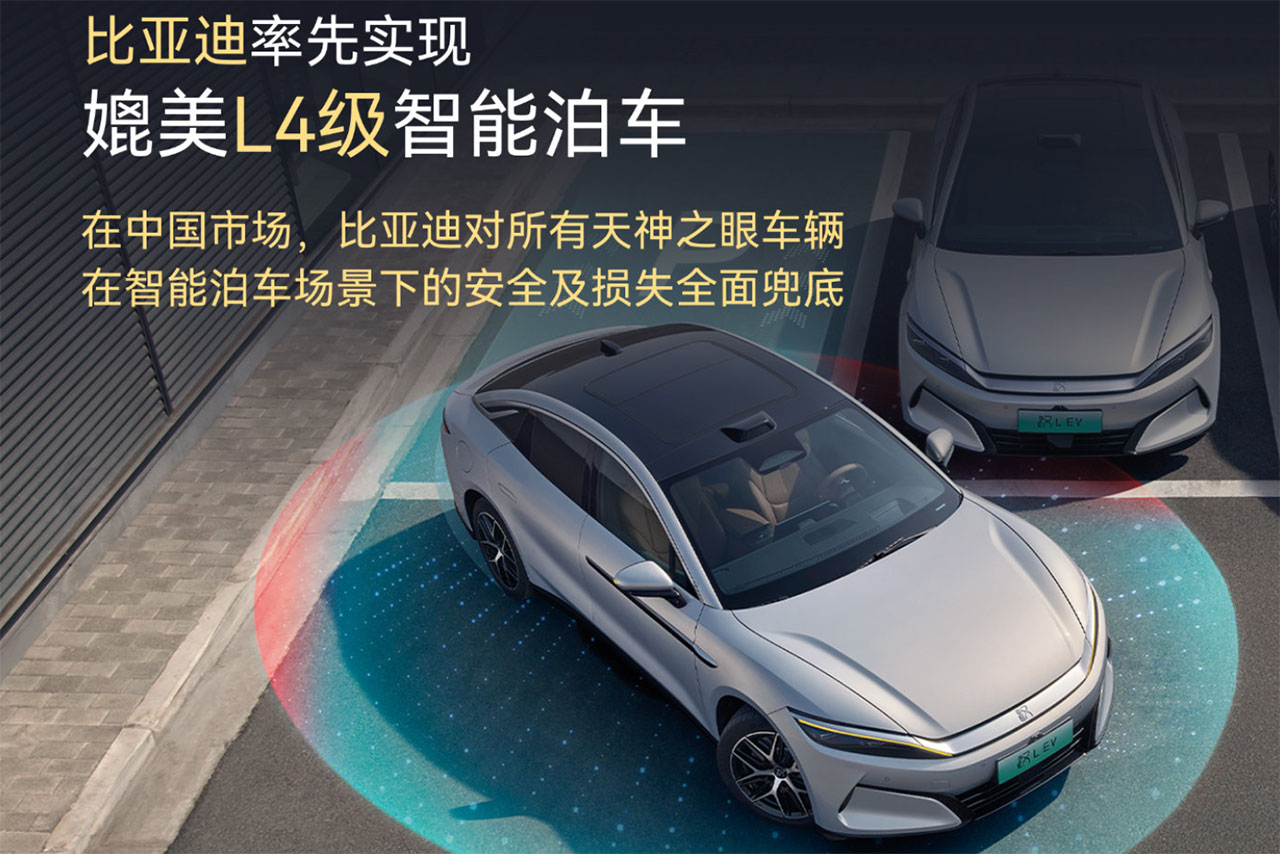
Welcome to the Ride AI newsletter: your weekly digest of news and intelligence at the intersection of technology and transportation.
We chatted with Angus Pacala, CEO and co-founder of Ouster, which develops high performance lidar sensors for all sorts of use cases. We dove into the nitty gritty of what makes a good sensor and how lidar could transform urban traffic as we know it. Give it a listen!
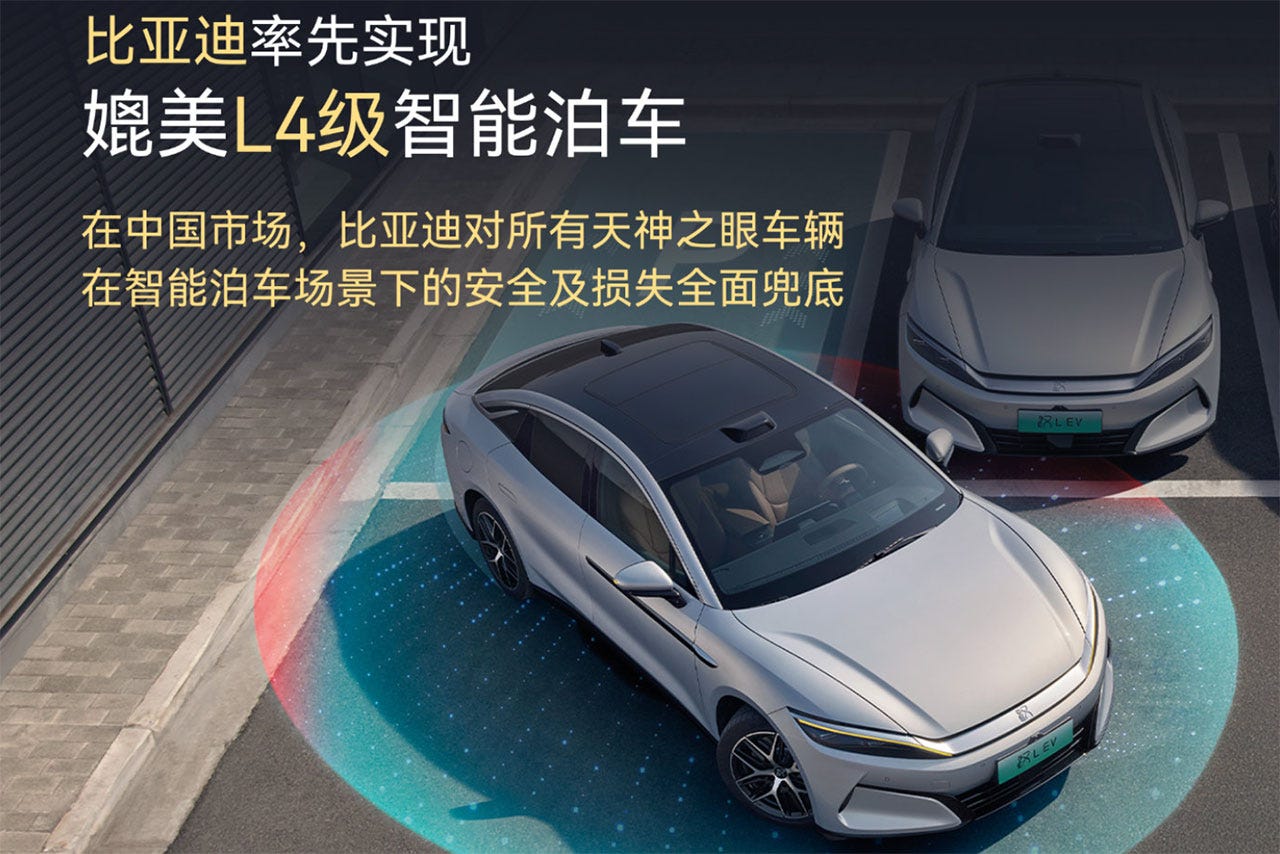
This makes BYD the first company globally to achieve L4 autonomy of any kind in any privately owned consumer vehicle. The feature is part of the company's God's Eye intelligent driving system, which promises to eventually enable fully autonomous driving in consumer vehicles. The company states that if an accident occurs while using the L4 parking assist feature, users can directly contact BYD's after-sales service for resolution and assistance without first going through insurance.
The shift in liability from user to manufacturer represents the company's high confidence in its autonomy platform, which is available in over 1 million vehicles. The feature will be rolled out as part of what BYD says will be the largest OTA update for the God's Eye system ever.
While the parking assist feature is L4, the rest of the God's Eye intelligent driving system is still currently at L2. It is also worth noting that back in April, Xpeng also announced that it would compensate users for accidents caused by its own Navigation Guided Pilot system. However, users must first be subscribed to Xpeng's paid service to take advantage of the offer, making it more of an additional insurance scheme than a guarantee.
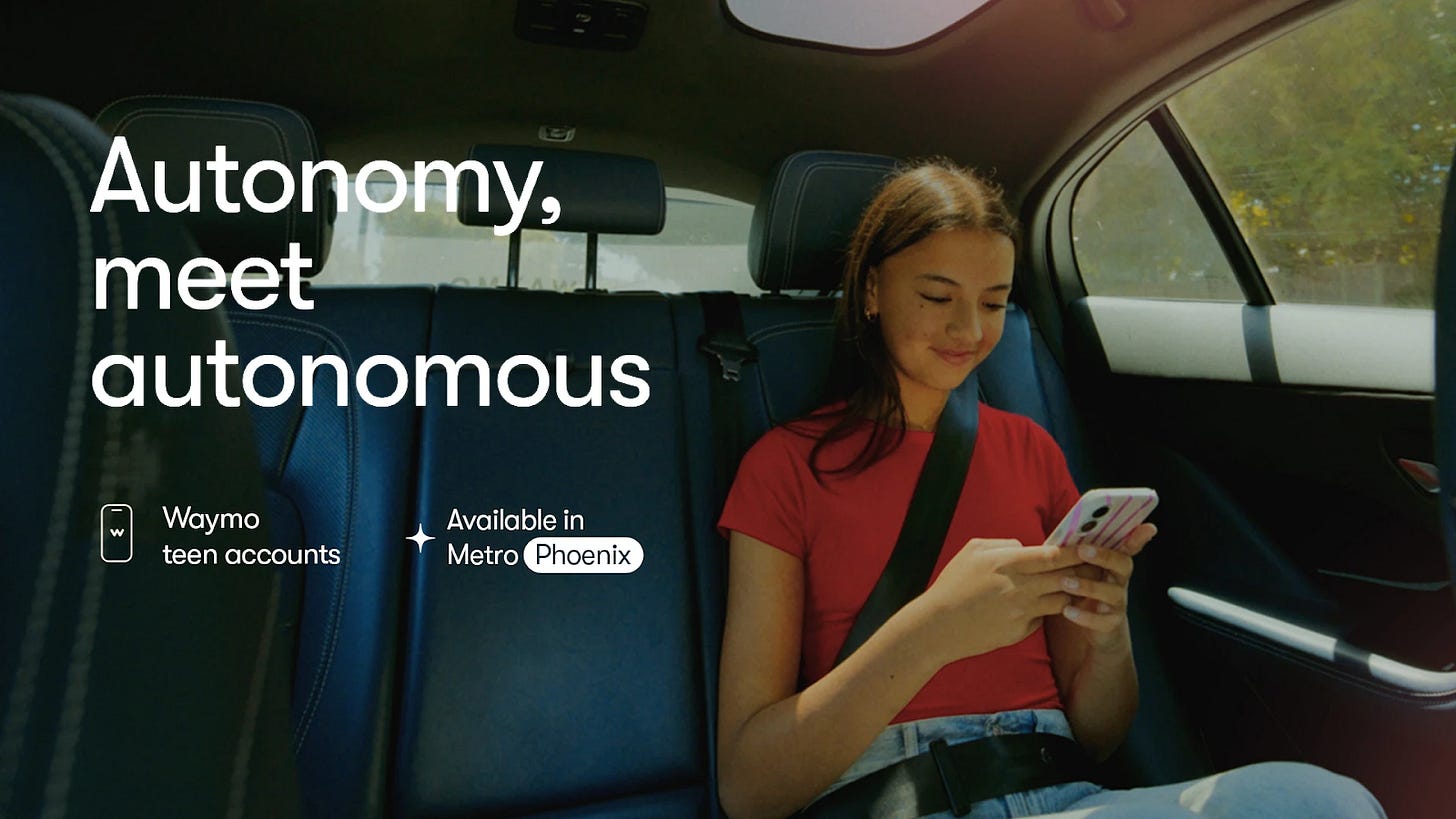
Under the current terms of service, unaccompanied minors under the age of 18 are prohibited from riding in the company's robotaxis by themselves. With the launch of the new teen accounts, the service is now officially open to teen riders aged 14-17 in the metro Phoenix area.
Adults can use their Waymo accounts to send invitations for teen accounts. Teen accounts are linked to the adult account, and approved teens are allowed to ride without an adult present. Teen accounts share their locations in real time with adult accounts and receive priority support from "specially trained" senior remote operators. The operators may even loop in parent accounts if necessary.
This marks an inflection point in trust in autonomous vehicles. While parents in service areas like San Francisco have been sending their kids to school by themselves in Waymo vehicles for quite some time, this is the first time the company is shouldering liability for the practice. But beyond liability, for parents to place their trust in a robot to transport their kids is a huge deal and a big shift in public perception of AVs. No longer are they an expensive science experiment. Instead, they're now starting to be seen as a legitimate public utility. I wish the Waymos braving the school drop-off lines godspeed.
On July 9, Tesla CEO Elon Musk replied to Tesla Owners Silicon Valley on X, saying that Tesla was awaiting regulatory approval to begin robotaxi operations in the San Francisco Bay Area. CNBC has also reported that Tesla has applied for approval to test and operate its robotaxis in Phoenix, Arizona. The company has also expanded its service territory in Austin, Texas, to reflect the shape of a phallus.
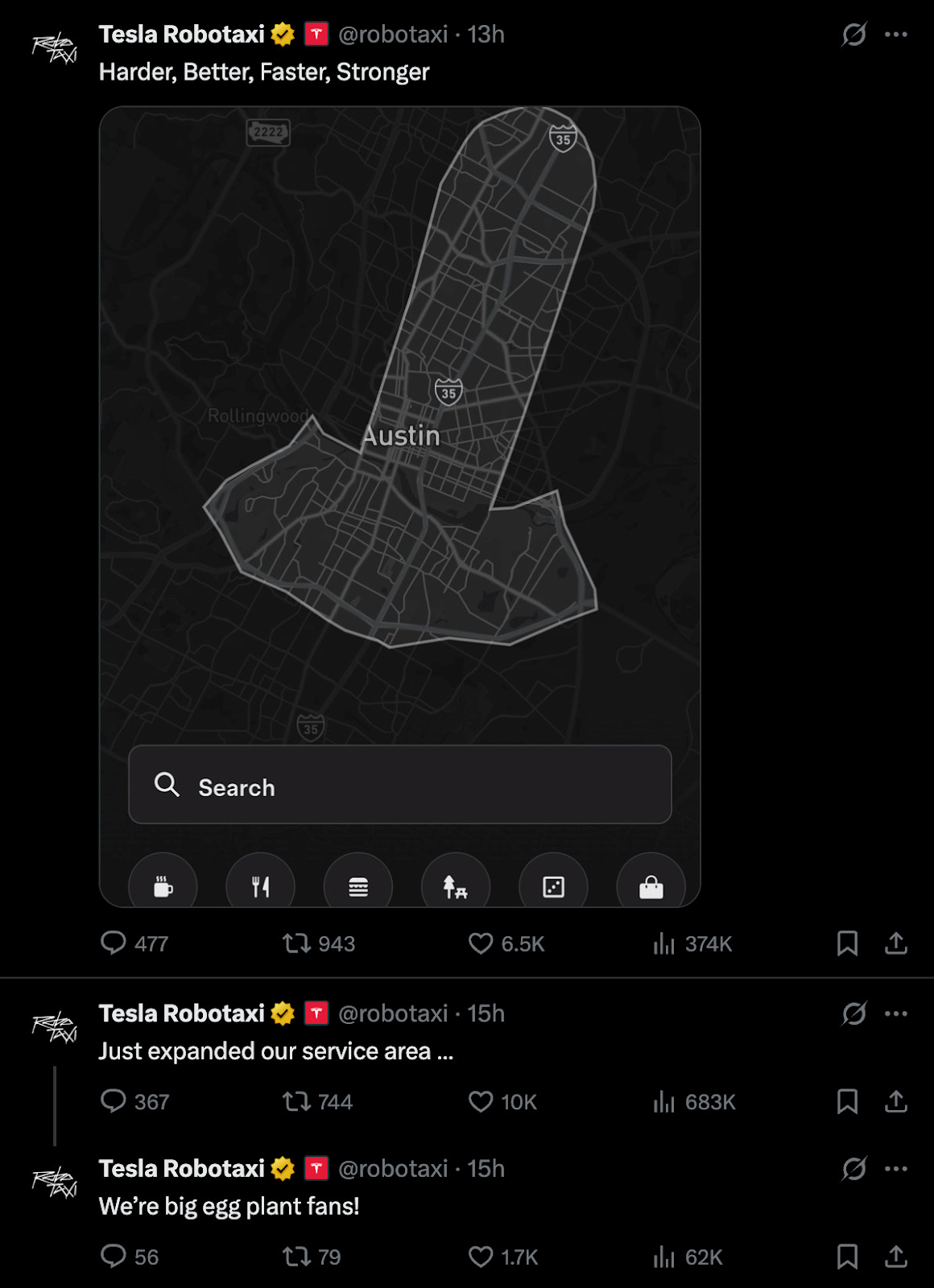
However, regulators are calling foul on Musk’s timeline. While the company does have a ride-hail permit from the California Public Utilities Commission (CPUC), the permit does not authorize Tesla to offer rides to the general public or operate a full ride-hailing service. In addition, the company has not yet applied for any of the additional required permits, including one for the CPUC's autonomous vehicle passenger program. Currently, the company is only allowed to test with safety drivers in the state. This differs from Texas, where all that is required to launch an autonomous vehicle service is proof of insurance.
Tesla is also required to submit annual disengagement data to the California DMV, which it has not done since 2019, when it submitted an autonomous 12.2-mile drive around its Palo Alto headquarters. However, Tesla did register over 220 test drivers and 100 vehicles for an autonomous driving permit in California earlier this year.
Tesla is also on trial in a liability case about a fatal crash in which the company's Autopilot system is involved. The results of the jury trial are pending as of publication.
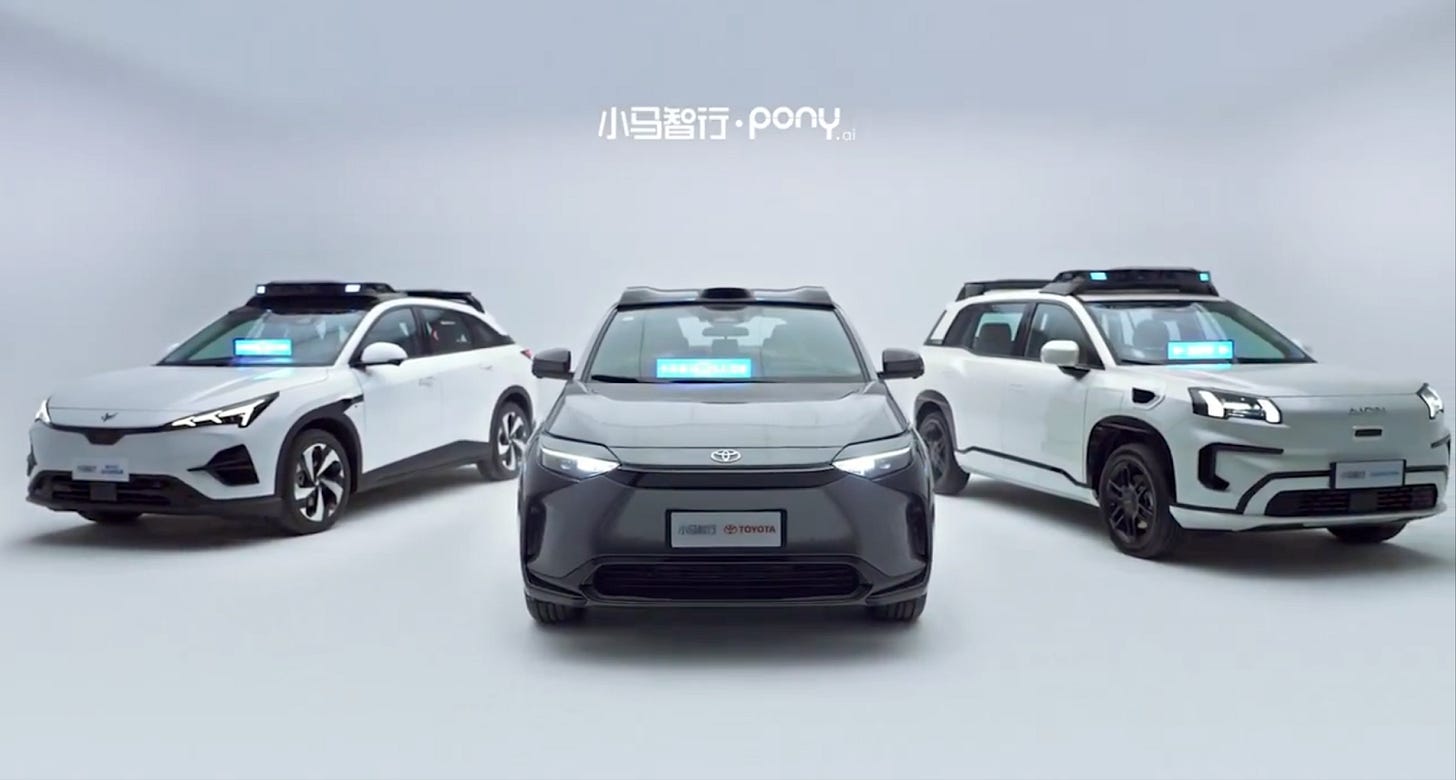
The new ride vehicles were first unveiled at the Shanghai Auto Show in April and are based on the Toyota bZ4X, GAC (Guangzhou Automobile Group) AION V 2nd gen, and BAIC (Beijing Automotive Industry Corporation) ARCFOX Alpha T5. Pony claims that its 7th-generation driver hardware is the first to use 100% "automotive-grade" components and has a 70% lower BOM cost compared to its 6th-generation driver hardware. The 7th-generation hardware is also meant to be adapted across a wider variety of vehicles more easily.
The company aims to build over 1,000 AVs based on the 7th-generation platform by the end of the year. It has already logged over 500,000 hours of fully autonomous service on its 5th- and 6th-generation platforms.
I was able to experience Pony's 6th-generation robotaxi based on the Lexus RX450h in Shenzhen earlier this year and will have a video coming soon on the experience. While the Lexus is a gas hybrid, the new 7th-generation vehicles will all be electric, aligning with the company's plans to deploy all-electric fleets internationally.
While we didn’t receive any questions we could provide an answer to in this newsletter, I encourage you to ask any questions you may have in the comments below and we will try to get you the answer!
Alright, that’s it from me… until next week. If you enjoy this newsletter, share it with your friend, colleague, or boss. Thank you for reading; Sophia out!
Get all the latest news in AI x Mobility across the globe.
Continue reading more about the world of robotics, automation, and AI